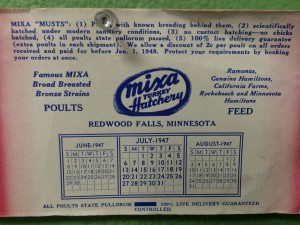The recording after the beep said, “If you are satisfied with your message, press 1 now. If you would like to re-record your message, press 2 now.”
Was I satisfied with the message I left? Not at all. Could I do better with another try? Perhaps. Then again, with another try chances are good that clarity on one detail would be sacrificed and swapped for fuzzy on another. This message in all its glorious inadequacy would be sent as is, faults and all.
I wonder how many people take advantage of the option to “Press 2”? How many messages have been recorded yet never forwarded because, given the opportunity to reflect on what we just said, we re-think and try again? This time with more or less feeling. More or less detail. More or less understanding.
How many angry awful words have been jettisoned into cyberspace in favor of softer sentiment? How many verbal jabs have been sent back to their corner and told to come out fighting fair? How many relationships, business and otherwise, have continued on as normal unaware that an audio dagger briefly flashed in their direction had been sheathed in a saving moment of sanity?
All because we can “Press 2”.
Technology makes it possible to place a perfect message into a voice mail box. We can be our own producer and re-record our message until it is crystal clear, expertly enunciated and deftly detailed. We can record a perfect message. All we need to do is “Press 2”.
That’s the rub. Real life conversations aren’t recordings. They are live concerts. That’s what makes daily dialogue so exciting. And so dangerous. It’s a rapid fire give and take in which we play alternate roles of stage performer and audience member. What do we say when we have the microphone? What do we hear when we listen?
In real life conversation we don’t have the luxury of laying down communication tracks one at a time. We can’t go into the studio and record the drum beats of context or the bass line of emotion. We can’t put on the headphones to align our melody of meaning with the lead licks of life experience. Daily dialogue is live, not Memorex.
An old proverb says “Three things come not back: the sped arrow, the spoken word, and a missed opportunity.” Unfortunately, spoken words and missed opportunities often go away together. Words wrongly spoken damage opportunities for understanding. In the live concert of conversation, what comes through the microphone is out there forever. When something we speak from stage hurts someone, isn’t it interesting they never say, “I don’t pay attention to the words, I just listen to the music.” Sadly, we can all be assured that our worst lyrics will be remembered the longest.
Someday technology might allow for a “Press 2” option in the human brain. Until then, we’re on our own. It’s probably a good idea for all of us to slow down and think about our words before we take the stage of conversation. No one knows where words go after we speak them. We know they come not back, except as memories to encourage us or ghosts to haunt us. In our words, we’ll be wise to be careful and kind.
“Even a fool is thought wise if he keeps silent, and discerning if he holds his tongue.”- Proverbs 17:28
Todd A. Thompson – November 1, 2001



